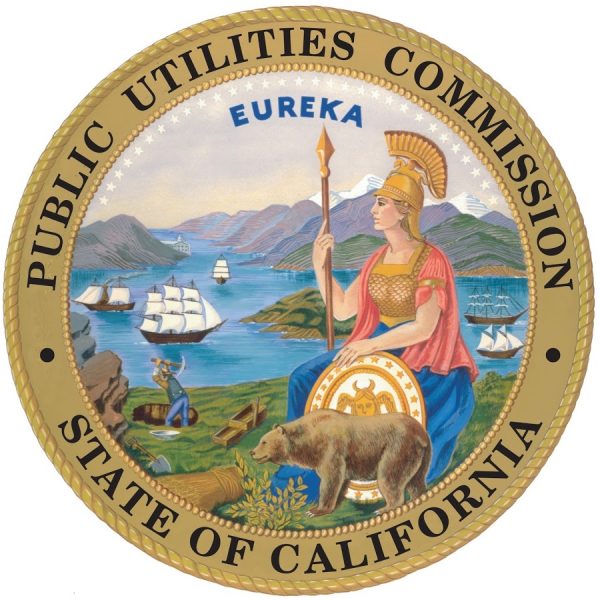
Palomar Energy Center. (Photo: San Diego Gas and Electric)
California Legislators Tell Public Utilities Commission to Reject Proposal For Higher Electric Bills
Lawmakers still don’t get it – limiting energy sources causes high utility rates and energy shortages
By Katy Grimes, January 30, 2024 9:05 am
“Ten Senators led by Senator Scott Wiener (D-San Francisco) released a letter calling on the California Public Utilities Commission (CPUC) to reject a utility-backed proposal that would raise energy bills for millions of Californians by $360-824 per year.”
You read that right.
“The proposed fixed charge is 4-6x higher than similar charges in other states, and removes the incentive for customers to reduce their bill by conserving energy. To date, the CPUC has not held public hearings on this proposal.”
My PG&E bill is double what it was last year.
“Californians already pay some of the highest electric bills in the nation and should not be forced to arbitrarily pay more to cover for a private utility’s poor business decisions,” said Senator Wiener. “The utility-backed proposal would place an unacceptable burden on millions of middle class Californians and remove a critical incentive to conserve energy. The CPUC must respond to public criticism and come up with a better proposal.”
As I read this press release from Sen. Scott Wiener, I smiled. As I frequently say, Democrats’ bad policies don’t exempt the left. They suffer as well under high taxes, business-crushing regulations, bad public schools, crumbling infrastructure and high energy and gas prices. Right?
And then, my smile faded. Sen. Wiener wants higher income residents to pay the lions’ share of the increased utility costs.
“In 2022, the Legislature passed AB 205, which required the CPUC to move the state to an income-based system of paying utility bills, known as an income graduated fixed charge. Under this system, all customers pay a fixed charge set by their income to cover the costs of building and maintaining electrical infrastructure, plus a smaller additional amount to account for the energy they actually use. The CPUC began the rulemaking process to implement this law last year ((R.) 22-07-005).”
Sen. Wiener voted to pass AB 205.
In April, the Globe reported that Southern California Edison, Pacific Gas & Electric and San Diego Gas & Electric filed a proposal to create income-based utility billing.
Sen. Wiener’s solution isn’t reality-based.
Up until recently, utility bills are/were based on electricity and gas consumption. The utility companies are now proposing income-based utility billing so that higher-income earners pay for more than they use, subsidizing the rates for lower income customers.
We reported on a 2021 report from the University of California at Berkeley recommending that the state link California’s highest-in-the-nation electricity bills to customer incomes – ie. your ability to pay.
Authors Severin Borenstein (an economist?), Meredith Fowlie, and Jim Sallee of the UC Berkeley and the Energy Institute at Haas admit that California’s electricity rates are so high, lower-income households pay a larger share of their income on electricity.
Rather than using all available energy sources to create energy abundance and lower energy costs, the Berkeley report proposed “cutting back on the volumetric per-kilowatt-hour charges on customers’ bills and recovering the missing money through constructs tied to customers’ income.”
And the Legislature and Governor approved this scheme through AB 205, which was signed by Gov. Gavin Newsom in June 2022 claiming it was needed because the wild swings in utility prices that California experiences.
California has the highest electricity rates in the country. “Those costs could rise even faster over the next decade, as utilities harden their grids against wildfires, grow their share of net-metered rooftop solar and add other costs that will be passed through to utility customers,” Next 10 reported over two years ago.
Sen. Wiener’s press release continues:
“The fixed charges proposed by the utilities – currently ranging between $51 and $73 for non- CARE and FERA customers, depending on the IOU – would be the highest in the nation. Millions of Californians – including those who live in apartments, condominiums and small homes not covered by subsidized plans like CARE and FERA – will see their bills increase. The fixed charges proposed by the investor-owned utilities are four to six times the national median of $12 adopted by 173 investor-owned utilities.”
Sen. Wiener is correct.
CARE and FERA customers are part of a monthly discount of 20% or more on gas and electricity. That the state has to provide these discounts is evidence that California’s energy costs are exorbitant – even unconscionable.
“Data shows that families in smaller homes with low energy usage, who make as little as $40k a year, will see their bills increase annually by as much as $360. These extra costs will come with no discernable benefits, and ratepayers will have no options to lower their bill through conservation. Conversely, large homes with high energy usage (for example in PG&E territory) will see their bills decrease by as much as $824 dollars a year.”
Sen. Wiener is also correct that lower income families will see a higher percentage of the increase in relation to their incomes.
But this is where Sen. Wiener goes off the rails:
“The proposed changes also threaten to undermine California’s progress toward our climate goals. There is no evidence that this untested rate structure will promote electrification, as data clearly show that customers respond most strongly to the total size of their electric bill, not small changes at the margin. By removing the opportunity for large savings through major reductions in energy use, the proposed plan would undermine the incentive for customers to cut their electricity usage.”
Give it up already!
California’s politicians and unelected agency leaders are limiting energy sources rather than using an all-of-the-above approach to energy production in California: Oil, gas, coal, nuclear, hydroelectric, solar and wind.
If all we are allowed to use is renewable energy for electricity production – a deliberate energy shortage – statewide shortages and rolling blackouts inevitably become the new California normal. Sen. Wiener’s solution is no solution – opening up all energy sources is the only solution.





Repeating:
This scheme CANNOT happen. If it does we’re finished.
This sneaky trailer bill nonsense (AB 205) has been done before. As we’re being bombarded 24/7/365 with an avalanche of ridiculous, irrelevant legislation, how convenient is it that somehow the huge ruinous commie crap is somehow sneaked in the back door! Then no one knows about it until THIS unacceptable energy-triggered wealth-redistribution B.S. rears its ugly head.
Meanwhile, let’s not forget that our scoundrel leadership’s Green Schemes caused energy to become unaffordable for those the Dem/Marxists have always pretended to champion in the first place.
How about this: Everything that was passed by the legislature, signed by the Gov, sneaked in through the budget, gutted and amended at the midnight hour, or executive ordered by the Gov, during our “pandemic state of emergency” in CA, which we now know was a fully fake theatrical production, is illegitimate and should be thrown out. After all, a citizenry under “state of emergency” caused by a paralyzing “pandemic threat” is unable to respond to an out-of-control governor and legislature the way it would without that threat. Was there a deadly health threat that disrupted all of our lives for three years or wasn’t there? Which is it, Dear Leaders?
“The California Public Utilities Commission would have to approve the proposal and make a final decision by mid-2024. If approved, the fixed-rate bills could be in effect as soon as 2025.”
Below is the CPUC contact page FYI. Between now and “mid-2024,” preferably “now,” it sure seems as though we need to write to them with our deep concerns about this. The more the better. This nonsense will spread beyond energy if not stopped, don’t you think?
Contacting the CPUC:
https://www.cpuc.ca.gov/about-cpuc/contacting-the-puc
Thanks for the link, ShowandTell.
This increase (aka: redistribution of wealth scheme) is wrong and the CA legislature should have never ventured anywhere near it.
You’re so right, bminks. WE all know the legislature (and gov) made a big mistake with this one. Whether THEY realize it remains to be seen. But they must have had a clue because they tried to hide it (budget trailer bill). Sneaky jerks.
Of course creepy Democrat Sen. Wiener’s solution isn’t reality-based and his suggestion to limit energy usage to meet “California’s climate goals” is ludicrous? He’s part of the criminal Democrat Khazarian mafia who are pushing the climate change scam on behalf of their benefactors like the CCP, the World Economic Forum globalists and others?
I missed the gist of this article. Apologies to anyone sent on a wild goose chase because of my impulsive repeat post. Too much going on.. Need to take a break!
“Pay More, Get Less” seems to be the motto of the crooks in Sacramento. They never once talk about increasing supply, only taxing demand and telling us to live with less. Of course, they want to pander to their base, meaning illegal aliens and the liberals who support giving everything away to them. We’re already paying the highest rates in the country for well, pretty much everything – and that’s still not enough for them. When will it ever end? Something has to break eventually, people can’t keep paying forever higher rates for their pie-in-the-sky schemes. I’m just beyond disgusted with what this state has become, having seen much better times 47 years ago when I arrived here. I’m not sure I would have stayed if I’d known how off the rails it would get.
Reducing the price of electricity ($/kWh) is billed as the biggest benefit of AB205. It is also its biggest drawback. For while lower electricity prices may encourage electrification, they will not make it worthwhile to buy and electric car or a heat pump. What they will do is remove the incentive for every day conservation such as turning out lights or turning down the heat. Expect much higher electricity consumption if IGFC goes through.
And don’t expect lower bills. In the best case, the Joint IOU proposal suggests a few of the least affluent might save $20/mo. Most people will see their bills rise. The ones who will benefit most are the ones that use the most electricity (that’s the discounted item) and that is usually not those that live in low-income apartments.